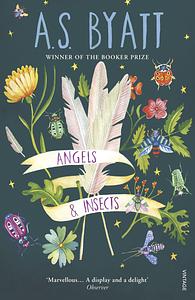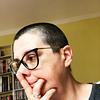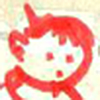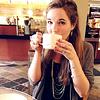Take a photo of a barcode or cover
I've only read "Morpho Eugenia" but it was alright. Hits you over the head with its symbolism and references though.
I enjoyed these stories and all the characters (the nice and not-so-nice) very much, but I must confess I resented the long poetry excerpts and the writings of the protagonists. A tad too much symbolism for me. But still a wonderful book and a pleasure.
The first quarter of the book was wonderful and very promising, and then the rest of it was just disappointing and dull.
It's two novellas. The first one about a man who studies insects. It's probably 3 stars. Pretty well-written except it tries to surprise the reader with something you can see a mile away. The characters are all a bit flat.
The second novella is a 1 or 2 star jumble. I just kept reading it to say I finished it.
The second novella is a 1 or 2 star jumble. I just kept reading it to say I finished it.
I've been meaning to read this for forever, and I really wanted to like it. Some discrete parts are really good and the subject matter is interesting, but ultimately the writing is a slog. I finished it out of duty.
One fun thing: for most of it, you can read the sentences and/or paragraphs out of order and not lose anything.
One fun thing: for most of it, you can read the sentences and/or paragraphs out of order and not lose anything.
This is an interesting novella that explores the question of whether mankind is merely an instinctual animal driven by nature, or are we something more? I actually enjoyed it quite a bit.
Every single character in the first novella is writing a book. The novella quotes extensively from each which is a little annoying and, of course, each book is the character's way of trying to tell another character the truth he or she does not see. A little heavy handed but it all comes together in a neat little scandal at the end. I couldn't read the second novella. I barely made it through the first as her prose is a little too lush and descriptive for me.
I stopped about half-way through, after the first novella. Mostly, I kept reading because I enjoyed the parts about the insects-I like to observe the critters in my yard, and I was interested in the descriptions of the ants and their behavior as written by the main guy and the woman he likes who isn't his wife. See? I can't even remember their names. Anyway, the woman who isn't his wife also writes a book/short story for children, and it is included in the novella, and I actually liked this, but not enough to read the rest of the book.
This is kind of hard to review as it's 2 novellas rather than a single novel, and I had quite different opinions of the two.
I thought the first, 'Morpho Eugenia', was ok. I'd say it's worth a read and had some interesting elements. The comparison of human and ant behaviour is quite effective in places, but the lengthy descriptions of ant behaviour are really quite boring. The tension between religion and science in the age of Darwin is another element which is interesting, but almost overdone, as again it spills into confusing detail. The ending was bizarre and hard for me to accept.
On the other hand, I loved the second novella, 'The Conjugial Angel'. It's about séances, spirituality, religion, loss, and poetry. I thought it really worked. The characters were all interesting and the inclusion of lots of verse and biblical quotes was compelling rather than boring.
I thought the first, 'Morpho Eugenia', was ok. I'd say it's worth a read and had some interesting elements. The comparison of human and ant behaviour is quite effective in places, but the lengthy descriptions of ant behaviour are really quite boring. The tension between religion and science in the age of Darwin is another element which is interesting, but almost overdone, as again it spills into confusing detail. The ending was bizarre and hard for me to accept.
On the other hand, I loved the second novella, 'The Conjugial Angel'. It's about séances, spirituality, religion, loss, and poetry. I thought it really worked. The characters were all interesting and the inclusion of lots of verse and biblical quotes was compelling rather than boring.
A.S. Byatt is one of my favorite authors, and yet I do not consistently love her works. I think a part of my feelings about this work, which are fairly middle of the road (I liked the novella "The Conjugal Angel" but was bored by "Morpho Eugenia"), have a lot to do with my mood. I think I wanted something quick and entertaining, and Byatt is too dense for that. Her writing is always smart and her characters are always flawed in interesting ways. I might reread these someday when I'm in a different mood (or, literally, a different place).





